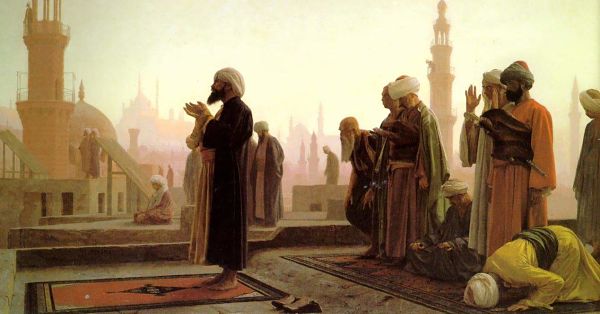
by Jim Denison
Ramadan is a time for ISIS to hate. It’s a time for us to love.
Last month, ISIS spokesman Abu Mohammed al-Adnani called for Ramadan to become a “month of hurt” in the U.S. and Europe. In Orlando we witnessed the first response to his call to terrorism. It is not likely to be the last.
According to CNN, U.S. law enforcement agencies have 1,000 active investigations into U.S. homegrown jihadists, eighty percent of which involve ISIS supporters. How many more Omar Mateens are planning to strike?
The tragic irony is that Ramadan is a time of peace for the vast majority of Muslims around the world. It is also a time when they are especially open to a message of love.
Ramadan is the ninth month of the Islamic calendar. According to Muslim tradition, on the seventeenth day of Ramadan in the year AD 610, the Prophet Muhammad received the first of many visitations from the angel Gabriel. The messages he received became the Qur’an.
As a result, Muslims the world over celebrate Ramadan as their holiest month of the year. Ramadan began this year on the evening of June 5 and ends on the evening of July 5. During these weeks, Muslims will fast from sunup until sundown, read the Qur’an (many in its entirety), increase their charitable contributions for the poor, and seek to cleanse themselves from impure thoughts and motives.
While Islamic law does not prohibit warfare during Ramadan, most Muslims use these weeks as a time to pursue peace with others and with God.
Not ISIS.
Abu Bakr al-Baghdadi, the self-appointed leader of the self-appointed Islamic State, chose the first day of Ramadan in 2014 to announce the formation of his caliphate. At the beginning of Ramadan last year, the group promised supporters who staged attacks during the month that they would be rewarded tenfold in paradise. Prior to the beginning of Ramadan this year, al-Adnani called on jihadists to “make it a month of calamity everywhere for unbelievers.”
We can expect ISIS to escalate its calls to violence even more in coming weeks as the group seeks to reverse serious setbacks in Iraq, Syria, and Libya. Its appeal to jihadists stands on its claim to be the “winning side” in its war against the non-Muslim world. One way to demonstrate its global reach is to inspire “lone wolf” terrorists to attack targets around the world.
As a result, the massacre in Orlando is likely only the first of such attacks. Sporting events are probable targets. Coordinated attacks similar to the shootings ISIS staged in Brussels are possible this month as well.
As ISIS-inspired violence escalates, we can choose to make Omar Mateen the face of Islam and respond to hatred with hatred. But that’s exactly what the terrorists want us to do.
Since the Qur’an requires Muslims to defend Islam (2:190–192), radical Muslims want us to attack their fellow Muslims so they can call the Muslim world to defend Islam by attacking us. Every act of hate against Muslims in the wake of the Orlando tragedy reinforces the ISIS narrative that the West hates Islam. Every time we reject Muslims for being Muslim, we encourage them to consider jihadism.
So instead of responding to hatred with hatred, let’s respond with love. Let’s show our Muslim neighbors, the vast majority of whom reject ISIS and terrorism, that we do not blame them for the atrocities of a radicalized few.
Just as Christians do not want to be known for the KKK, the Muslims you know do not want to be known for ISIS or Omar Mateen. Muslim leaders across America were quick to condemn the Orlando shooting, rejecting ISIS and its terrorist agenda.
Now the next step is ours. If you’re a Christian leader, reach out to a Muslim leader in your community. If you’re a follower of Jesus, prove your love for him by loving your Muslim neighbor.
Franciscan friar Richard Rohr noted, “If we don’t learn to transform the pain, we’ll transfer it.” Let’s transform the pain of Orlando into the embrace of grace. Then, as Jesus promised, they will know that we are Christians by our love.
James C. Denison, Ph.D., is the author of “Radical Islam: What You Need to Know” and CEO of the Denison Forum on Truth and Culture.













